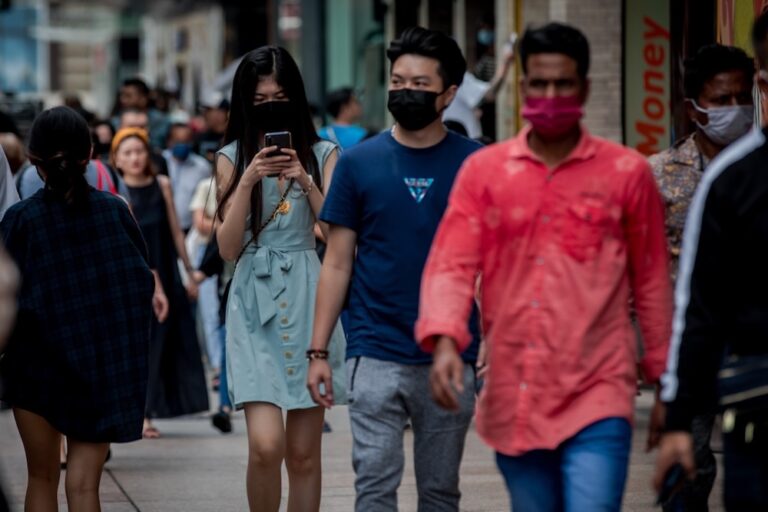(SEAPA/IFEX) – SEAPA is concerned by a spate of sedition threats in Malaysia, where sedition is a criminal offence punishable with a jail term of up to three years, or a fine of up to RM5,000 (approx. US$1,566), or both. On 6 May 2008, a well-known online critic, Raja Petra Kamaruddin, and a commentator on […]
(SEAPA/IFEX) – SEAPA is concerned by a spate of sedition threats in Malaysia, where sedition is a criminal offence punishable with a jail term of up to three years, or a fine of up to RM5,000 (approx. US$1,566), or both.
On 6 May 2008, a well-known online critic, Raja Petra Kamaruddin, and a commentator on his website, Syed Akbar Ali, were charged under the 1948 Sedition Act in the Sessions Court in the state of Selangor and the capital of Kuala Lumpur, respectively. Two days later, Prime Minister Abdullah Ahmad Badawi ordered a ruling party official to lodge a sedition complaint against Karpal Singh, a top politician with a rival party, for questioning the jurisdiction of sultans.
Raja Petra and Syed Akbar have denied the charge. Syed Akbar was released the same day on a bail of RM3,000 (approx. US$939), while Raja Petra, who initially refused to post the bail set at RM5,000 as a matter of principle, was only released on 9 May after his wife persuaded him to change his mind.
Raja Petra, 58, who runs the popular Malaysia Today website ( http://www.malaysia-today.net ), was charged over his 25 April article, “Let’s send the Altantuya murderers to hell”, which allegedly implicated Deputy Prime Minister Najib Abdul Razak and his wife in the gruesome murder of a Mongolian national. Both have issued public denials of any involvement in the killing of Altantuya Sharibuu, 28, who was blown up with explosives in October 2006. A prominent political analyst, Abdul Razak Abdullah Baginda, who is closely linked with the deputy premier, is on trial for allegedly abetting the murder, while two officers from an elite police squad are on trial for the murder.
Raja Petra, whose controversial online allegations about the inner workings of the ruling elite have garnered him a huge following among netizens, is also a fiery orator who contributed to the turning of public opinion against the ruling government through his speeches in support of the federal-level opposition parties during the March 2008 polls. The charge against him, which he claims is politically motivated, and his detention have outraged his supporters, who contributed RM44,000 (approx. US$13,758) toward his bail within three days, through an online campaign.
Earlier, on 2 May, police raided his house, seizing a laptop and a central processing computer unit before summoning him for questioning at the Federal Commercial Crimes Investigations Department (CCID) in the capital.
In a second case, Syed Akbar, 48, an entrepreneur as well as a published author and former newspaper columnist, was charged over his 5 June 2007 online response to another article by Raja Petra, “Malaysia’s organised crime syndicate: All roads lead to Putrajaya”. His trial will begin on 6 June 2008.
Meanwhile, on 9 May, six members of the dominant ruling party, United Malays National Organisation, and a coalition of Malay non-governmental organisations filed two police reports against Karpal, an opposition member of Parliament, for making allegedly seditious remarks against one of the monarchs who historically rule nine out of 14 states of the constitutional monarchy in Malaysia.
A 5 May report in the “Star” English daily quoted the chairperson of the Democratic Action Party as saying: “Sultan Azlan Shah did not have any say, as the Ruler of Perak, in the decision made by the state government and, by law, the palace cannot order the state government to reinstate Jamry [Sury as the state’s Islamic Department director].”
Jamry had been transferred to another department for refusing to cooperate with the new ruling state government in Perak, which was formed by the federal-level opposition coalition, People’s Pact.
The monarchy, a Malay sultanate, is a sensitive topic in multi-ethnic Malaysia, which is dominated by the ethnic Malays, followed by the Chinese, Indians and indigenous groups.
Civil society groups in Malaysia have criticised the Sedition Act, which criminalises, among other things, “a tendency to bring into hatred or contempt or to excite disaffection against any Ruler or against any Government”, as an archaic colonial legacy whose overbroad provisions were meant to prevent any criticism against the powers that be and stifle debate.
In Raja Petra’s case, the charge “will fuel further speculation about the integrity of the judicial process in the Altantuya trial [and] strengthen the people’s suspicion of the judiciary and the executive”, said the Malaysian organisation Center for Independent Journalism (CIJ) and its ally, the Writers Alliance for Media Independence, in a 2 May release ( http://www.cijmalaysia.org/content/view/318/1/ ).
Updates the Raja Petra Kamaruddin case: http://ifex.org/en/content/view/full/93475


